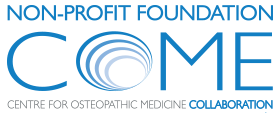The osteopath-parent-child triad in osteopathic care in the first 2 years of life: a qualitative study
Enactivism and active inference are two important concepts in the field of osteopathy. While enactivism emphasizes the role of the body and the environment in shaping our experiences and understanding of the world, active inference emphasizes the role of action and perception in shaping our experiences and understanding of the world. Together, these frameworks provide a unique perspective on the practice of osteopathy, and how it can be used to facilitate positive change in patients. Since the neonatal period is a crucial time for development, osteopaths should aim to create a therapeutic relationship. Arguably, through participatory sense-making, osteopaths can help the baby build a generative model (with positive priors) to deal with stress and needs throughout their life. Since the literature considers that interactions with the environment, which enact the patients’ experiences, depending on contextual factors and communication between patient and caregiver, this research explored whether there is a correspondence between the indications in the literature and clinical practice in the management of the mother/parent–child dyad during osteopathic care on children aged 0 to 2 years old … MORE







